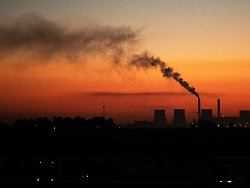Monday, November 8th, 2021
Just before the total blackout
South Africa turns off electricity for entire regions
The world is looking for ways to reduce CO2 – phasing out coal is one of the most important means. South Africa currently generates a large part of its electricity with fossil fuels, and also with outdated power plants. The network is now so overloaded that the electricity is turned off by the hour.
Many parts of South Africa are running out of electricity. Just a few days after the announcement of a German investment package to support the South African exit from coal-fired power generation, the Cape state is groaning under nationwide power cuts.
To prevent a nationwide blackout, the state energy supplier Eskom announced on Sunday that it would have to take entire regions off the grid for the entire week. He justified this with an overload of the network. A total of 17,437 megawatts (MW) of power was missing due to failures – plus the failure of 4,361 MW due to planned maintenance work. In addition, there is too little fuel for the replacement diesel generators.
International support for South Africa to phase out coal
Despite the global struggle for a CO2 reduction to protect the climate, South Africa, with its rich coal reserves, continues to rely on around 80 percent of its outdated coal-fired power plants, which are increasingly prone to failure, to generate energy. At the World Climate Conference in Glasgow, Scotland, representatives of the German government declared that they wanted to support the country in the transition to clean energy sources.
The 700 million euros promised by Germany are part of a new energy partnership with South Africa, which Great Britain, the USA, France and the EU have also joined. A total of 8.5 billion US dollars (about 7.36 billion euros) in support is planned for the next five years, a large part of it in the form of loans. The partners also want to mobilize private funds and World Bank funds to promote the use of new clean technologies, including “green hydrogen”, in South Africa. The partnership is also intended to support the creation of new jobs in these areas.
